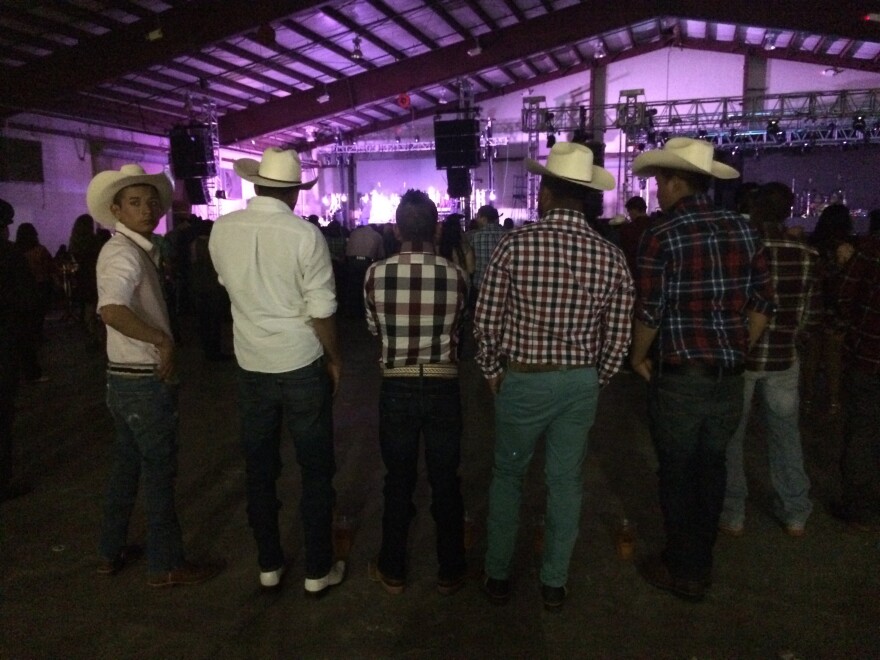Norteño music developed along the Texas-Mexico border. It blends the instruments of mariachi with the rhythms of polka. And now, one of norteño's most popular bands is hoping its music will get more Latinos to the polls.
Los Tigres del Norte -- The Tigers of the North -- have been putting out norteño hits for four decades. The band performed in West Palm Beach on Feb. 19. A lot of its songs touch on social and political issues: immigration, workers' rights, drug trafficking, political representation.
Jorge Hernandez Sr., the band's leader, says Los Tigres is especially working to make political representation a priority this year. At some concerts, Los Tigres has had tables where fans can pledge to vote in the presidential election. And they’ve helped create a website to encourage voter registration.
"What we do is invite them -- to participate, not to be quiet," Hernandez says. "They have to be part of the voice, of the Latino voice."
A recent national analysis by the non-profit Latino group NALEO estimated that less than half of Latinos who are eligible to vote will vote in the 2016 presidential elections. That lack of participation troubles Irma Cabriales, an activist from Fort Pierce who's originally from Mexico. Cabriales says she thinks that if Latinos don't vote they won't have leaders who represent their interests and address problems in their communities.
"You don’t participate, then there’s nothing you can do," she says. That's why she's organizing citizenship classes and voter registration drives. Cabriales is also planning a voter registration party, to which she's invited local candidates and elections officials.
Hernandez Sr., from Los Tigres, says the invitation to vote is especially important for young fans. Nationally, 44 percent of Latinos who are eligible to vote are millennials, according to a recent Pew Research Center study.
So Latino millennials -- roughly aged 18 to 34 -- could be a tremendous political force. But only if they vote.
Eduardo Gamarra teaches Latin American politics at Florida International University. He says young Latino voters are less predictable than their parents. In Florida, for instance, Cubans and Cuban-Americans historically have voted as a Republican bloc, and Republican candidates didn't have to work too hard to win them over.
That's not the case for many up-and-coming Cuban voters, Gamarra says.
"They’re not recent arrivals; they were born here. Their parents, even, may have been born here," he says. "So their connections with back home are not that direct" and may not influence which candidates Cuban millennials support.
A similar trend is occurring among non-Cuban Latinos who are millennials, Gamarra says.
"The younger generations are shifting," he says.
Both Cabriales and Jorge Hernandez Sr. -- from Los Tigres Del Norte -- say their activism is partially a response to Donald Trump’s harsh comments about Mexican immigrants. But this goes beyond Trump. Ultimately they’re trying to make sure Latinos’ political influence matches their population size.
That makes sense to 20-year-old Liliana Castañeda, who was at Los Tigres' show in West Palm Beach and says she plans to vote in the upcoming election.
"There’s a lot of Latinos that are not voting, and that’s actually why I feel I need to," she says.


